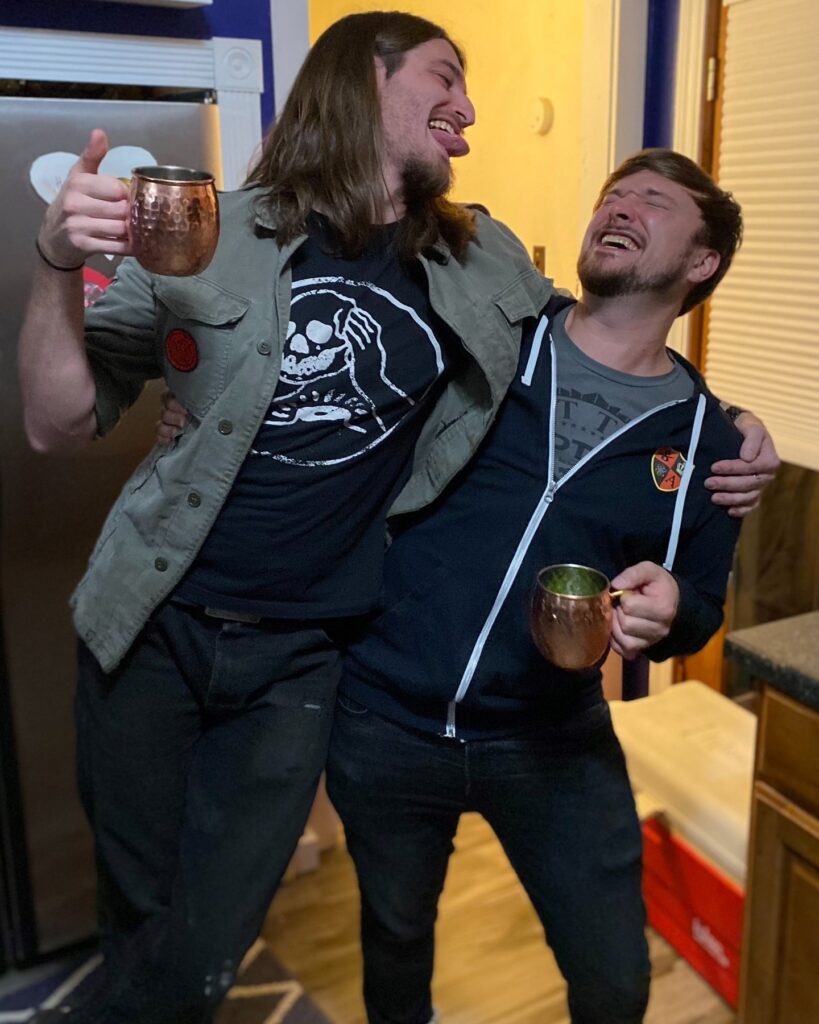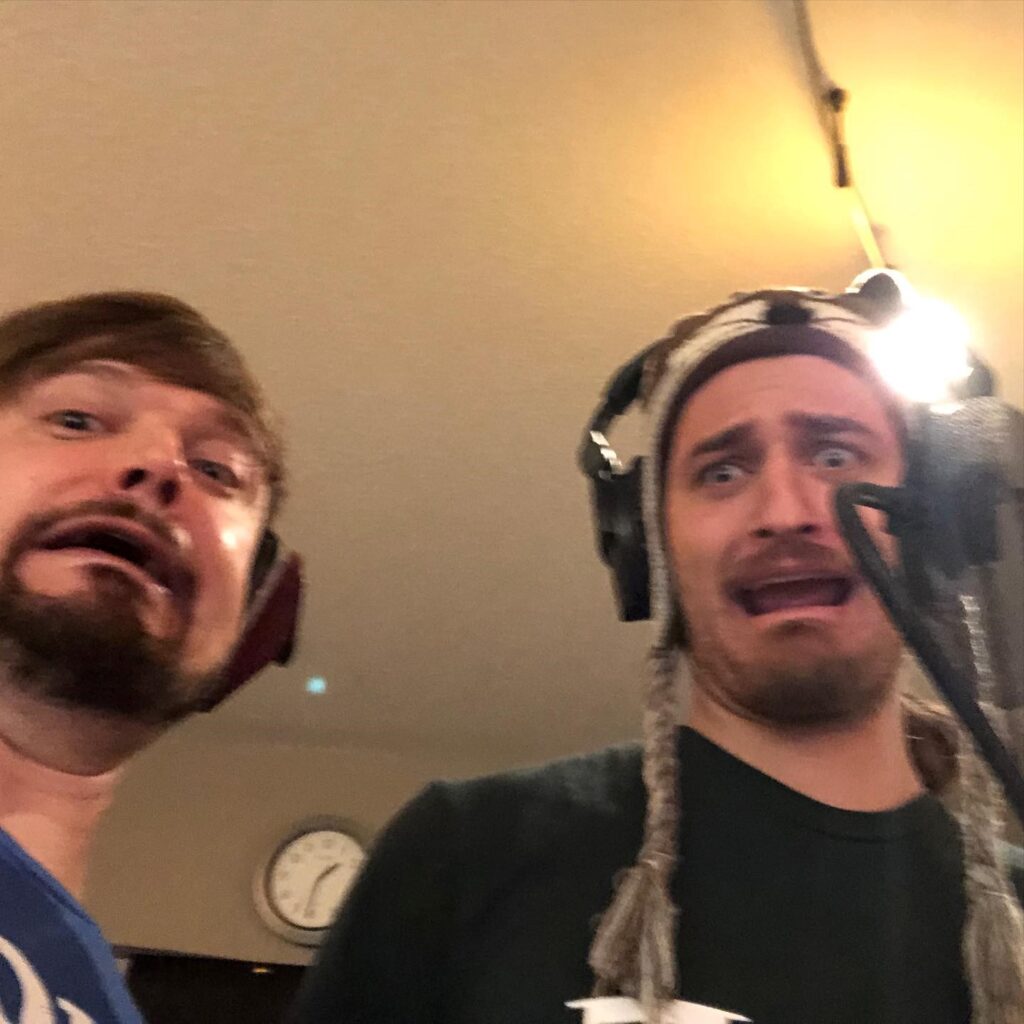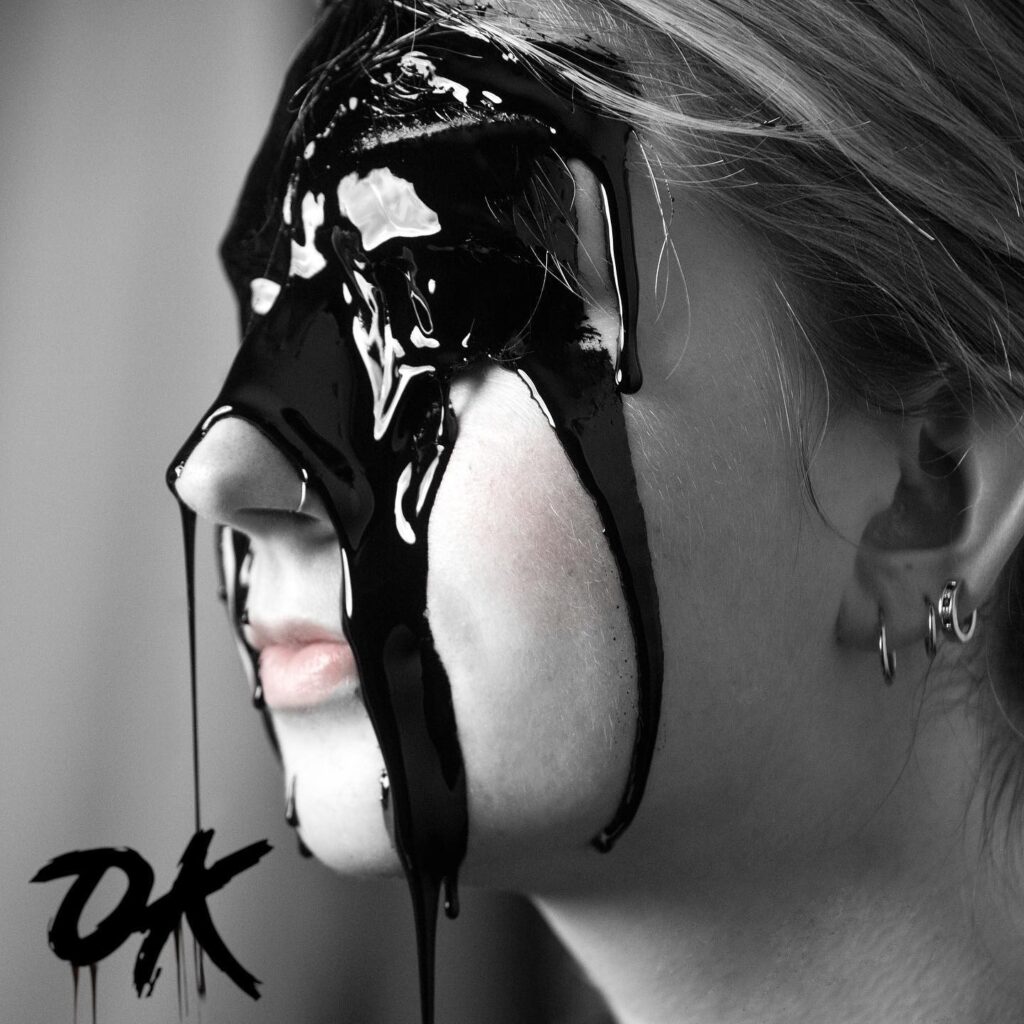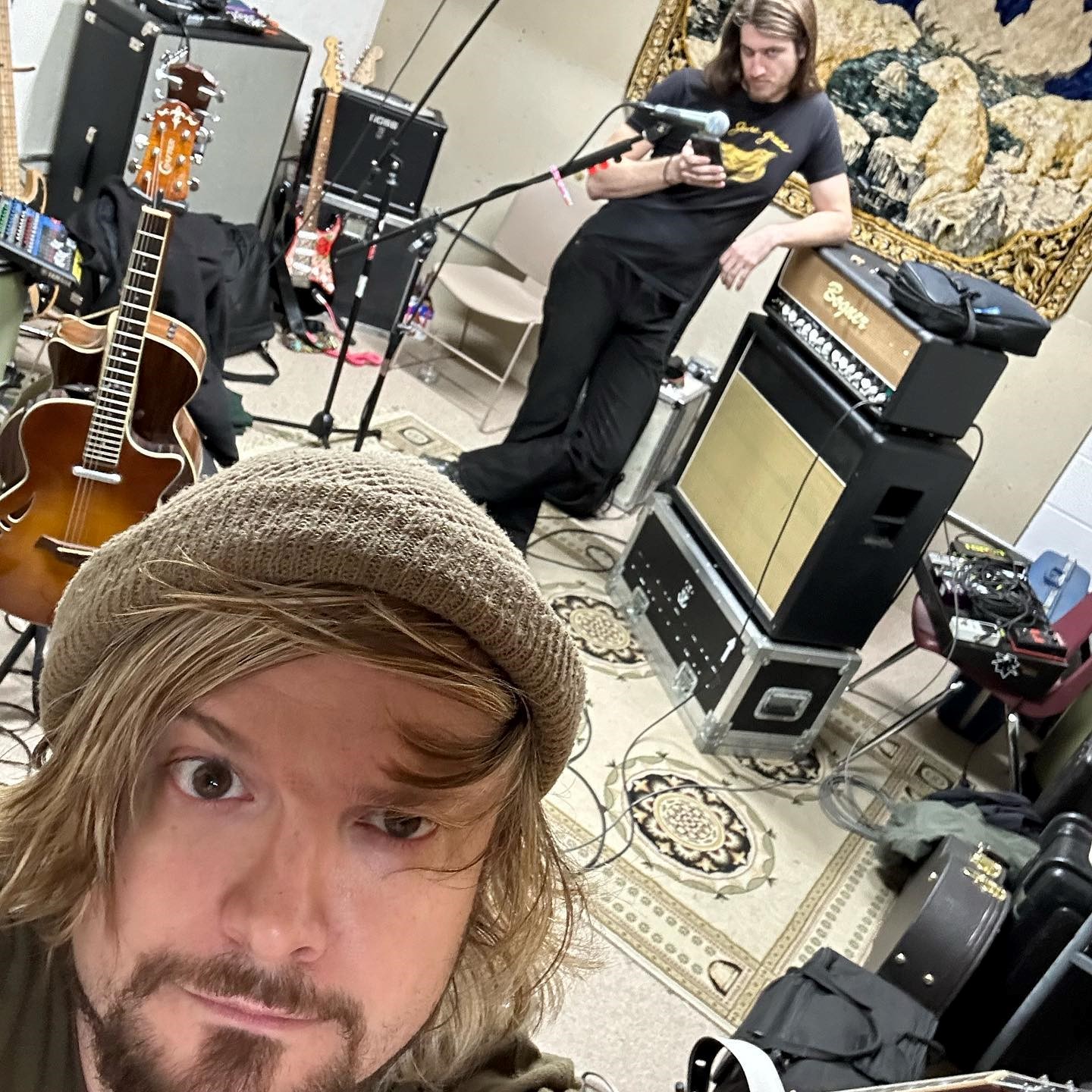Around 2015, multi-instrumentalist and producer Matt Buehner formed The Outside Kids. His notebooks were filled with unfinished tunes, and from this flotsam sprang the EP ‘Are You Okay?’ This EP was a test of Matt’s DIY recording skills; he recorded five songs in three days. “Home” and “Streetlights” established a competent pop-punk sensibility, while “Wake Up” audaciously opened the door for harder future material. The EP established the foundation for the’middle-of-a-pandemic’ follow-up hit, “Where I’ve Been.” “Where I’ve Been” paired COVID ambiguity with a sound reminiscent of a Dookie B-side. The production and songwriting approach of OK began to change. Just in time to reconnect with an old pal…
Sam Halote introduced himself to Matt by striking him in the head, which was permissible in their martial arts class. Shared discipline rapidly evolved into a set of band values, including quality, acceptance, and accessibility. Similar musical preferences (Sam introduced Matt to his favorite bands, Against Me! and Frank Turner) and easy communication made it a no-brainer to include Sam in the group. The Outside Kids became plural.
Since making this decision, Sam and Matt have composed countless songs. The most effective of these became The Outside Kids’ debut full-length album, ‘Dirty Faces.’ If you need to recover from a shattered heart, body, mind, or soul, these 13 songs will provide the much-needed catharsis. There is healing for all here. Check out the album and the exclusive interview here:

1. Can you tell us a bit about where you come from and how it all got started?
THE OUTSIDE KIDS: The Outside Kids are based in the South Dakota, but have always been a multi-state band. I (Outside Kids founder, Matt Clayton) created the idea for the band while living in Northern California. When singer/co-writer Sam Halote joined the fray, we had already lived together for some time in Denver, CO, and our collaboration was born out of a shared love of riffs and deep conversations about our personal experiences. We used music as a vehicle for group therapy. Now, our band is based loosely out of Rapid City, SD, where bassist Pat Fahey and drummer Zac Conger have rounded out the lineup, performing often at nearby venues. Tour plans are in the works, and we’re excited to announce the release of our first full length album, ‘Dirty Faces.’ Available everywhere now!
2. Did you have any formal training or are you self-taught?
THE OUTSIDE KIDS: I’m an experienced live and recording audio engineer, but a self-taught multi-instrumentalist. Our sound is a direct product of our own personal musical explorations and self-discoveries; luckily for us, there a lot of intersections between our favorite bands and songs. Our shared love for punk energy, catchy melodies, and lyrics meant to be shouted full tilt drive us to take our shows and records to the next level.
3. Who were your first and strongest musical influences and why the name ‘THE OUTSIDE KIDS’?
THE OUTSIDE KIDS: Ooo this is a fun one. My first ever ‘real’ band was a Green Day cover band, which probably comes as no surprise if you’ve heard our first EP, “Are You O.K.?”. We’re drawn to the catchiness of pop-punk in general, but a bit more raw and riffy. Heavy guitars and a headbanger drums make our hearts beat harder.
The name “The Outside Kids” is a direct reflection of my state of mind when I put out the first EP. I was working as a live sound engineer, recording bands on the side, and bartending to fill the financial gaps. I was always on the outside looking in to all of these wonderful (seeming) situations. Mixing and recording great bands, simply put, made me jealous. Why wasn’t I doing that? So, now the name is a reminder to me: carve your own path, follow your sound, make no excuses and plenty of mistakes, and never, ever stop.
Also, as we became more confident songwriters, we began exploring our own trauma and coping mechanisms in song format. Any “Outside Kid” understands the importance and burden of managing your mental health, and we hope that people listening to our words feel a kinship for each other. Feel that they are not alone in their struggle.
4. What do you feel are the key elements in your music that should resonate with listeners, and how would you personally describe your sound?
THE OUTSIDE KIDS: Loud guitars, Travis Barker-ish drums, an emphasis on melody leading a song where ever it will, and never, ever inflating a boring idea. We tend to storyboard a lot of our songs; like literally write out a plot with characters. We write the story line for the song, explore how an audience might interact with or perceive it, and then we start hunting down the sounds that complete the story.
Our sound is Green Day-style pop-punk hooks and a little RHCP melodicism blended with a 90s Seattle sound built out of alt-rock infectious earworms, wrapped up in contemporary rock package.

5. For most artists, originality is first preceded by a phase of learning and, often, emulating others. What was this like for you? How would you describe your own development as an artist and music maker, and the transition towards your own style, which is known as POST POP PUNK?
THE OUTSIDE KIDS:
As I mentioned, my childhood band covered a lot of Green Day. Imitation is the start of art, and to this day, I still have to pause working on a new riff I just came up and make sure it isn’t already on Dookie… But after those first cover performances, The Outside Kids sound really came into focus when I began working as a studio musician in LA around 2010. I was young, inexperienced, and got my ass kicked by a lot of excellent engineers and producers. They didn’t mince words about what I was and wasn’t good at. After developing a thicker skin, I realized the value of those accurate criticisms, and the burgeoning ability to step back and judge my own work. That was the first step to developing my own style and sound.
Another thing: I’m a drummer first. Rhythms were my first love, and if a new song idea doesn’t make me want to move my body some way right off the bat, I know it’s not a super strong idea yet. Every time I find a new syncopation or picking pattern or some weird, skewed time signature change that excites me, I find a new song style. This kind of open experimentation over the years developed my ability to write a song like “It Could Be,” which on paper makes no f***ing sense. There are groupings of five and three measures for no apparent reason, a key change going into AND out of the choruses, and extra bars thrown in to make riffs breathe. But the end result is maybe my favorite song of the record, and has certainly been a crowd favorite.
We call our music “post pop-punk” because we sometimes feel genre-less. Like we’re mashing a lot of things together and it doesn’t feel contained by a word or phrase. But our DNA is still very much fun-loving, sardonic, irreverent; all the trappings of pop-punk. We just use it to explore real problems we face.
6. What’s your view on the role and function of music as political, cultural, spiritual, and/or social vehicles – and do you try and affront any of these themes in your work, or are you purely interested in music as an expression of technical artistry, personal narrative, and entertainment?
THE OUTSIDE KIDS:
I don’t think you can really have any one of these things without the other. The choice NOT to be political is a statement of political value in and of itself, no?
i think music should serve a purpose. However, that purpose is an unspoken contract between artist and audience. I can’t tell someone what to feel when they hear our songs. But I can only to their response. Some (most if we’re lucky!) people will be entertained, but I hope some are moved, or even enraged. Music should invoke a reaction, spark an introspection. Cause a revolution.
We write honestly. Whatever is sitting heavy on our hearts that day or bubbling up from some childhood memory or pissing us off or turning us on… that’s what we write about. Our agenda is to get better at our individual craft of playing instruments, and to get better at our live show, our songwriting, our friendships. To give an audience back what they give us, and to make it enjoyable to feel the same thing as the guy next to you in the audience.
Doing that takes us into a lot of different territory; we are pro-human rights in every way possible. We take an active stance against phobic behavior and have zero tolerance for hate speech. We want to build inclusivity, freedom of speech, and a safe community for all at our shows.
Our mental health struggles inspire us. I’m high functioning ADHD to a sometimes comical level, and have struggled with depression my entire adult life. Songwriting has been a saving grace in that arena, and I hope to transmit even %1 of that healing power to someone listening to our music. To let them know that someone gets it.
7. Do you feel that your music is giving you back just as much fulfillment as the amount of work you are putting into it or are you expecting something more, or different in the future?
THE OUTSIDE KIDS:
This is a good question. It’s something I struggled with a lot until recently. Creating art is a such a, well, strange process for the artist. Your self-worth and identity get all tangled up in this thing you’re making. If someone likes it, that validates your effort. If someone doesn’t like it, that can make you question why you’re even doing it in the first place.
But then it gets weirder: what about when a person you despise likes your stuff? Or a whole group of people? What if a group of people you’re diametrically opposed to hates your stuff? How do you triangulate self-worth from that?
What I’m finally learning, deep in my bones, is how to let go of all expectation. When I go back to songs I released years ago, I still hear the truth in it. I hear the reason that song came out of me in the first place. That’s my fulfillment. That’s why I create music.
All that said, though… I have watched bands make it from scratch. Friends are on world tours right now. We would like to join them, and will do our damndest to make it happen.
8. Could you describe your creative processes? How do usually start, and go about shaping ideas into a completed song? Do you usually start with a tune, a beat, or a narrative in your head? And do you collaborate with others in this process?
THE OUTSIDE KIDS:
Some of my favorite songs are the ones that arrive whole. The only thing that sucks is this usually happens RIGHT as I’m falling asleep after staying up to late, and then I have to get up and record the thing before the idea disappears. I’m a quasi-caffeine addict because of this…
But usually, there is a marriage between a chunk of a song idea and a riff or a simple melody or a lyric. There’s some nugget of truth in that marriage that captures our attention, and like a popcorn kernel stuck in our teeth, we keep picking at it until it comes out. Then, like I mentioned earlier, we start thinking of the background and story. What are feeling and exploring? Is this story linear? Or just a continuous snapshot of a single experience moment? Is there growth or change? Playing with these different narratives gives us an initial framework to flesh out a demo.
From there, some songs are neat and tidy and basically arrive with their own roadmap for us to finish at our leisure. Some get derailed often and we have to backtrack. Some sit in a dusty mental drawer for months before we accidentally open it and find we can finish it on the spot.
Sam and I are good at doing this together. We fill in the gaps in each other’s experience and vocabulary in a way that makes for easy communication, and a constant challenge to be articulate, accurate, honest. Musically, my ADHD is an asset. I play most instruments, and have no trouble bouncing between them all to get the song going. My studio is arranged to maximize this workflow: electronic drums, my most used guitars/basses plus related gear, and go to mics are all set up within a few feet of my mix position. Knocking out new ideas can proceed at about the speed of thought.
We’re very much looking forward to writing music as a whole. Up until very recently, this band was a studio project for just Sam and I. Zac and Pat bring so much to the table in terms of songwriting chops that I cannot wait to see what we come up with. And playing our released material live with them… well, come out to show and see why that’s so damned exciting.
9. What has been the most difficult thing you’ve had to endure in your life or music career so far?
THE OUTSIDE KIDS: Well, without spilling too many damning details, my early music career started under some pretty shady characters in LA. Huge amounts of corporate level white color crime, and some strange mob/mafia connections, gave me a pretty f***ed up view of the music industry before I even turned 20.
Getting over that premature jading and rediscovering the joy of writing and performing took years. But I’m better for it now. I can recognize good AND bad things when I see them better now.
10. On the contrary, what would you consider a successful, proud or significant point in your life or music career so far?
THE OUTSIDE KIDS: Self-producing and release ‘Dirty Faces,’ our first full length record, is probably the best thing I’ve ever done in my life. This record was ambitious, and we have no idea if we were overreaching or deluding ourselves. But when I listen to it now, I get excited to see where it takes us. That journey has just begun!
KEEP IN TOUCH:
FACEBOOK | INSTAGRAM | SPOTIFY | TIKTOK | WEBSITE | YOUTUBE

Photo credits: Lisa Houghton
